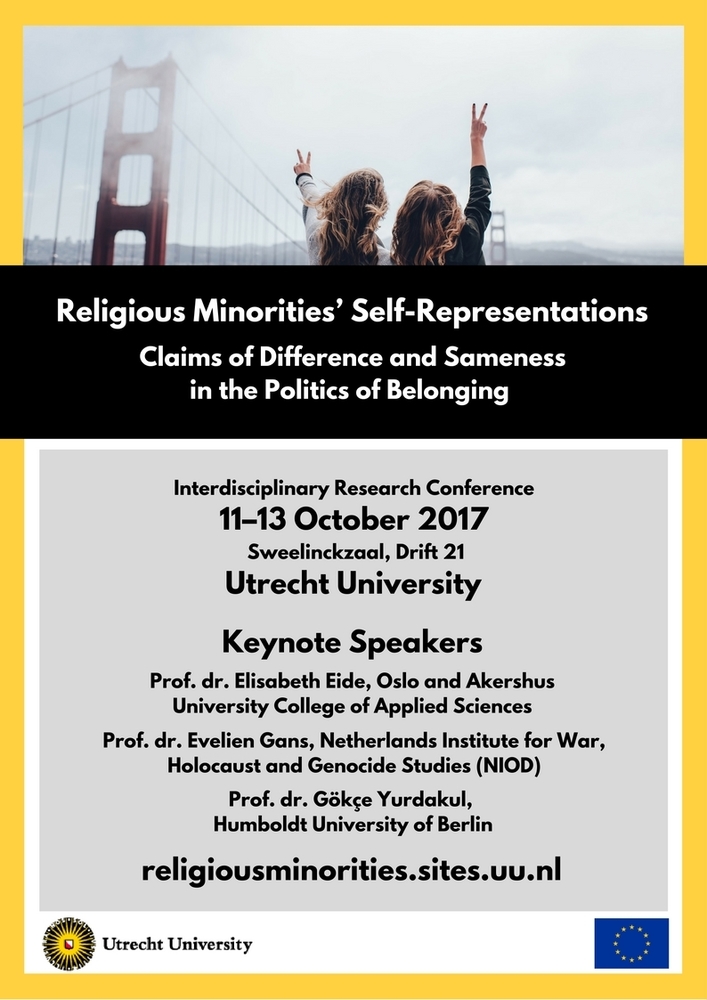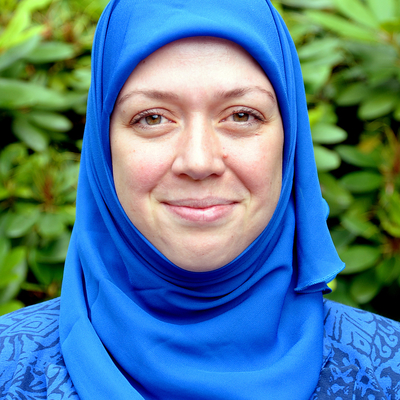From 11 to 13 October 2017, the international research conference “Religious Minorities’ Self-Representations: Claims of Difference and Sameness in the Politics of Belonging” was held at Utrecht University. The conference was hosted by the Department of Philosophy and Religious Studies, and it was organized as part of Dr. Margreet van Es’ MSCA-financed research project “Muslims Condemning Violent Extremism” (MUSLIM-NLNO).
During the last decades, there has been growing debate about religious and cultural diversity in modern Western nation states. The question of how people of different faiths and backgrounds can live together as a multiple “we” is considered by many to be one of the most urgent challenges to contemporary society. The multiple effects of ongoing globalization have provoked an increased emphasis on national identities and on “fundamental” (secular and liberal) values that are to be shared by all citizens of a nation-state. Yet, what seems to be an upsurge of civic rather than ethnic nationalism turns out to entail a culturalization of citizenship. While members of the white and (post-)Christian majority are assumed to be loyal to the nation-state and to share these fundamental values naturally, other citizens have to demonstrate these virtues over and over again in order to be accepted as part of society. This is especially the case when religious difference is commonly associated with ethnic difference. Particularly Muslims are often construed as an Other to the Western Self. Islam is repeatedly presented as inherently incompatible with Western values. “Difference” is increasingly perceived as “deviance”.
Numerous studies have critically addressed these issues, focusing on recent developments in dominant discourse. Far less attention has been paid to how religious minorities position themselves in this particular context. Religious beliefs and identities are not only constructed in opposition to those of others, but also in interaction with how believers think that they are seen by others. Religious minorities are by default positioned as “different” from the mainstream, but at the same time they have vested interests in resisting the “othering” of their minority group, and in making claims to their belonging to the nation as an imagined community.
The aim of this conference was to explore how dominant perceptions of specific religious minorities feed into the ways in which these minorities represent themselves and/or their religion. The focus was on identity content, rather than on identity labels. What kinds of explicit or implicit statements do followers of minority religions make – whether through texts, images or bodily behavior – about themselves or about their religion? How do these statements confirm or subvert popular prejudices or stereotypes in broader society? How do religious minorities balance between claims of difference and claims of sameness, at a time when minorities are increasingly urged to emphasize their national belonging and show their commitment to secular liberal values?
Scholars from different disciplines reflected upon the following topics: 1) the dynamics between dominant perceptions and self-representations of religious minorities in past and present; 2) religious minorities’ attempts to break stereotypes at different levels in society, from micro-interactions between individuals to well-planned media campaigns and everything in between; and 3) religious minorities’ participation in mediated debates about issues related to religious and cultural diversity.
The paper presentations covered a wide variety of minority religions (and minority denominations within majority religions) across the world – varying from Christians in Pakistan to Wiccans in the UK, and from Catholics in seventeenth-century the Netherlands to Muslims in Norway.
During the following months, a number of blog posts will appear on this website that are written by conference participants, based on their paper presentations.



